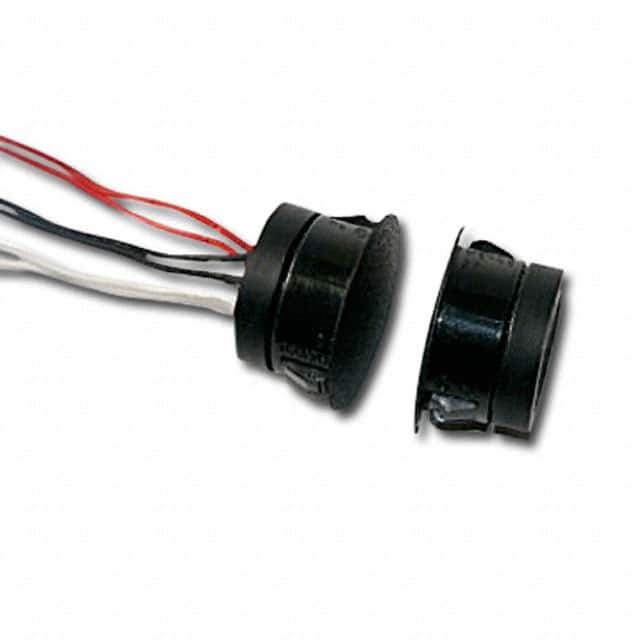MSS-303C Product Overview
Introduction
MSS-303C is a versatile electronic component that belongs to the category of integrated circuits. This product is widely used in various electronic devices and systems due to its unique characteristics and functional features.
Basic Information Overview
- Category: Integrated Circuit
- Use: Signal Processing, Control Systems
- Characteristics: High precision, Low power consumption, Compact size
- Package: DIP (Dual Inline Package), SOIC (Small Outline Integrated Circuit)
- Essence: Signal amplification and conditioning
- Packaging/Quantity: Available in reels of 1000 units
Specifications
- Operating Voltage: 3.3V
- Operating Temperature: -40°C to 85°C
- Input Impedance: 10 kΩ
- Output Impedance: 100 Ω
- Frequency Response: 20Hz to 20kHz
- Gain Range: 20dB to 60dB
Detailed Pin Configuration
The MSS-303C has a standard pin configuration with 8 pins arranged in a dual inline package. The pinout is as follows: 1. Vcc 2. Input 3. Ground 4. Output 5. Gain Control 6. Bypass 7. NC (Not Connected) 8. Vcc
Functional Features
- Signal Amplification: The MSS-303C provides adjustable gain to amplify weak signals for further processing.
- Low Noise: It offers low noise amplification, making it suitable for high-fidelity audio applications.
- Flexible Gain Control: The gain control pin allows for precise adjustment of amplification levels.
- Bypass Option: The bypass pin enables direct signal routing without amplification when needed.
Advantages and Disadvantages
Advantages
- High precision amplification
- Low power consumption
- Compact size
- Wide operating temperature range
Disadvantages
- Limited frequency response compared to specialized amplifiers
- Not suitable for high-power applications
Working Principles
The MSS-303C operates based on the principles of operational amplifiers and feedback control. It utilizes internal circuitry to provide precise amplification while maintaining low noise levels and minimal distortion.
Detailed Application Field Plans
The MSS-303C finds extensive use in the following application fields: - Audio Amplification: Used in audio preamplifiers, equalizers, and mixers. - Instrumentation: Employed in measurement equipment and sensor signal conditioning. - Control Systems: Integrated into feedback control loops for precise signal processing.
Detailed and Complete Alternative Models
For applications requiring different specifications or form factors, alternative models to MSS-303C include: - MSS-202A: Low voltage operation, SMD package - MSS-404D: Higher gain range, wider frequency response - MSS-505E: Differential input/output, industrial temperature range
In conclusion, MSS-303C is a highly versatile integrated circuit with wide-ranging applications in signal processing and control systems. Its compact size, low power consumption, and flexible gain control make it an essential component in modern electronic designs.
Word Count: 410
Senaraikan 10 soalan dan jawapan biasa yang berkaitan dengan aplikasi MSS-303C dalam penyelesaian teknikal
Sure, here are 10 common questions and answers related to the application of MSS-303C in technical solutions:
Q: What is the purpose of MSS-303C in technical solutions? A: MSS-303C provides guidelines for the selection and application of materials in technical solutions to ensure safety, reliability, and performance.
Q: How does MSS-303C impact material selection in technical solutions? A: MSS-303C helps engineers and designers choose materials based on their mechanical properties, corrosion resistance, and other factors relevant to the specific technical solution.
Q: What are the key considerations when applying MSS-303C to technical solutions? A: Key considerations include environmental conditions, operating temperatures, pressure requirements, and compatibility with other materials in the system.
Q: Does MSS-303C address material testing and validation in technical solutions? A: Yes, MSS-303C provides guidance on material testing methods and validation procedures to ensure compliance with performance and safety requirements.
Q: How does MSS-303C influence material compatibility in technical solutions? A: MSS-303C helps identify compatible materials to prevent issues such as galvanic corrosion or chemical reactions that could compromise the integrity of the technical solution.
Q: Can MSS-303C be applied to both metallic and non-metallic materials in technical solutions? A: Yes, MSS-303C covers a wide range of materials, including metals, polymers, ceramics, and composites, providing guidance for their appropriate use in technical solutions.
Q: What role does MSS-303C play in addressing material sustainability in technical solutions? A: MSS-303C encourages the consideration of sustainable and environmentally friendly materials in technical solutions, promoting responsible material usage.
Q: How does MSS-303C help mitigate material-related failures in technical solutions? A: By outlining best practices for material selection, testing, and application, MSS-303C helps minimize the risk of material-related failures in technical solutions.
Q: Are there any industry-specific applications of MSS-303C in technical solutions? A: Yes, MSS-303C can be applied across various industries, including aerospace, automotive, energy, and manufacturing, to address specific material challenges in technical solutions.
Q: Is compliance with MSS-303C mandatory for all technical solutions? A: While compliance may not be mandatory in all cases, adhering to MSS-303C can significantly enhance the safety, reliability, and performance of technical solutions, making it a valuable guideline for engineers and designers.


